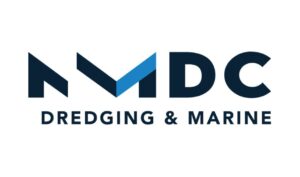The report on “Recreational Navigation and Nature” presents the findings of Working Group 12 of the PIANC Recreational Navigation Commission. The report is designed to assist waterway managers, the ports industry and organisations that are responsible for the planning and regulation of recreational boating and associated development. It is intended for use as a tool kit that demonstrates good practice in the management of recreational boating in the natural environment and highlights practical and cost effective techniques that can be easily applied.
Boat based recreation can conflict with the interests of natural resource protection. Pressure from such recreational activity may cause a decrease in the value of natural resources. The report explores the potential impacts of boat-based recreation and related activities on the natural environment. Information is provided on tools that are available to assist in the management of recreational boating in a manner that is compatible with the natural environment.
The objectives of the report are as follows:
-
To provide an overview of the types of potential environmental impact that can arise from recreational navigation and associated activities.
-
To assist waterway managers, the ports industry and organisations that are responsible for the planning and regulation of recreational navigation, by providing a “toolkit” that demonstrates good practice in the management of recreational navigation within the natural environment.
The water sports industry belongs to a sector, which probably takes most advantage from the natural environment. Its very existence depends on clean water. There is significant scope for introducing imaginative management tools to assist in the interpretation and enjoyment of the natural environment for water users, without compromising environmental quality. Positive management by waterway managers can help to support a vibrant recreational boating industry that grows economically, whilst maintaining and contributing to the improvement of a clean natural environment.
Ultimately the yardstick for managing water-based recreation must be sustainable development: “Development that meets the needs of the present without compromising the ability of future generations to meet their own needs”. In recreational navigation terms, this can be interpreted as making sure that the economic growth of the water recreation industry is maintained in such a manner that will not jeopardise natural resource systems.
Environmental damage arising from water recreation activities is often linked with the behaviour of the user, and in particular the way that equipment is operated. The introduction of educational programmes and the regulation of waterways, in consultation with users, can in most cases ensure that recreational boating takes place in harmony with the natural environment.
The report concludes:
-
The number of people wishing to participate in water-based recreation is increasing; this is reflected in boat sales figures world-wide, and by the diversity of craft available on the market.
-
Sustainable development is the key to successful growth of this industry, which is partially reliant upon the maintenance of a clean environment.
-
The combination of waterway, physical features, craft and activities will dictate the type and intensity of environmental impact. The interests of recreational navigation and nature have to be balanced.
-
The quality of the ecosystems that form the backdrop for a recreational activity is also important.
-
Some ecosystems are more robust than others and have a greater ability to absorb human impacts without long-term degradation. As a result, the resilience of individual ecosystems needs to be examined on a case-by-case basis by a professional ecologist, prior to agreeing the most appropriate management tools to adopt in a specific situation.
-
It is important that due consideration is given to the type of management tool required, and the cost of implementation.
-
It is strongly recommended that all water based recreation management contains an element of education/information and that users are consulted when new regimes of management are being considered.
Nine case-studies complete the report:
- Blue Flag awards for marinas
- Biesbosch, The Netherlands – National Park designation
- Cambado”s, Galicia, Spain – Dock regeneration
- Chichester Harbour, England – Integrated estuary management
- Haringvliet, The Netherlands – Closure of the Volkerak and Haringvliet sea arms
- Lahn, Germany – Integrated planning and information for recreational users
- Norfolk Broads, United Kingdom – Tidal rivers and manmade lakes
- Poole Harbour, United Kingdom – Aquatic Management Plan
- Three Arch Rocks, Oregon – Planning for offshore rocks and reefs

















